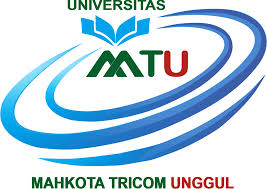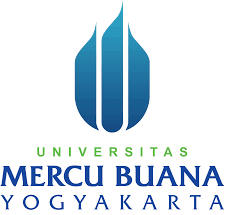The Strategic Importance of the One-Map Policy for the Certainty of Sustainable Business and Investment in Indonesia
DOI:
https://doi.org/10.59890/7dwb3997Keywords:
One Map Policy, Forestry Governance, Sustainable Investment, Spatial Data Harmonization, IndonesiaAbstract
Indonesia’s forestry sector faces persistent challenges related to overlapping land claims, spatial data discrepancies, and unclear land tenure, which undermine sustainable business operations and investment certainty. The One Map Policy (OMP) was introduced as a strategic initiative to harmonize spatial data and resolve these conflicts, aiming to enhance governance and support sustainable forestry development. This study aims to analyze the strategic importance of the OMP in ensuring sustainable business practices and investment certainty in Indonesia’s forestry sector. Employing a qualitative literature review approach, this research synthesizes findings from 80 peer-reviewed articles, government reports, and policy documents published from 2010 to 2025. Data collection involved systematic identification and selection of secondary sources relevant to forestry governance, spatial policy implementation, and investment trends. The analysis was conducted using thematic synthesis to integrate key insights on spatial data harmonization, institutional coordination, investment growth, environmental sustainability, and social impacts. The results indicate that OMP has significantly reduced spatial conflicts, improved forest boundary accuracy, and enhanced licensing efficiency, leading to increased investor confidence and growth in sustainable forestry projects. However, institutional fragmentation and challenges in integrating customary land rights remain significant barriers
References
Abidin, H. Z., Sarbini, N., Rosalina, L., Riyadi, D. S., Utomo, W., & Wijanarto, A. B. (2021). One map policy of indonesia: status, challenges, and prospects. Smart Surveyors for Land and Water Management-Challenges in a New Reality.
Afiff, S. A., & Rachman, N. F. (2019). Institutional activism: Seeking customary forest rights recognition from within the Indonesian state. The Asia Pacific Journal of Anthropology, 20(5), 453–470. https://doi.org/10.1080/14442213.2019.1652741
Ambarwulan, W., Nahib, I., Widiatmaka, W., Suryanta, J., Munajati, S. L., Suwarno, Y., & Sutrisno, D. (2021). Using geographic information systems and the analytical hierarchy process for delineating erosion-induced land degradation in the middle Citarum sub-watershed, Indonesia. Frontiers in Environmental Science, 9, 710570. https://doi.org/10.3389/fenvs.2021.710570
Apresian, S. R., Tyson, A., Varkkey, H., Choiruzzad, S. A. B., & Indraswari, R. (2020). Palm oil development in Riau, Indonesia: balancing economic growth and environmental protection. Nusantara, 2(1), 1–29.
Astuti, R., & McGregor, A. (2015). Responding to the green economy: how REDD+ and the One Map Initiative are transforming forest governance in Indonesia. Third World Quarterly, 36(12), 2273–2293. https://doi.org/10.1080/01436597.2015.1082422
Baskent, E. Z., Borges, J. G., & Kašpar, J. (2024). An updated review of spatial forest planning: Approaches, techniques, challenges, and future directions. Current Forestry Reports, 10(5), 299–321. https://doi.org/10.1007/s40725-024-00222-8
Binawan, A., & Osawa, T. (2023). The Value of Participatory Mapping, the Role of the Adat Community (Masyarakat Adat), and the Future of the Peatlands. In Local Governance of Peatland Restoration in Riau, Indonesia: A Transdisciplinary Analysis (pp. 211–237). Springer Nature Singapore. https://doi.org/10.1007/978-981-99-0902-5_10
Borras Jr, S. M., Franco, J. C., & Wang, C. (2013). The challenge of global governance of land grabbing: changing international agricultural context and competing political views and strategies. Globalizations, 10(1), 161–179. https://doi.org/10.1080/14747731.2013.764681
Bretz, K. J. (2017). Indonesia’s One Map Policy: A Critical Look at the Social Implications of a’Mess’. https://doi.org/10.1177/2057891117732289
Chehrehbargh, F. J., Rajabifard, A., Atazadeh, B., Steudler, D., & Nugraha, B. W. (2024). Towards Sustainable Land Governance: Extending the LADM to Support Global Initiatives Parameters-A Case Study in Indonesia. 12th International FIG Land Administration Domain Model & 3D Land Administration Workshop.
Degelsegger-Márquez, A., Remøe, S. O., & Trienes, R. (2018). Regional knowledge economies and global innovation networks–the case of Southeast Asia. Journal of Science and Technology Policy Management, 9(1), 66–86. https://doi.org/10.1108/JSTPM-10-2017-0063
Dewantoro, H., Hidayat, J. T., & Mulyawati, L. S. (2024). Analysis of Land Availability and Land use Directions in the East Development Area of Bogor District. Journal of Social Science, 5(5), 1307–1324.
Dockendorff, C., Fuss, S., Agra, R., Guye, V., Herrera, D., & Kraxner, F. (2022). Committed to restoring tropical forests: an overview of Brazil’s and Indonesia’s restoration targets and policies. Environmental Research Letters, 17(9), 93002. https://doi.org/10.1088/1748-9326/ac8ab2
Fauziyah, E., Awang, S. A., Suryanto, P., & Achmad, B. (2024). Land Fragmentation of Privately Owned Forest: Impacts and Farmers’ Adaptation Strategies in West Java, Indonesia. International Journal of Sustainable Development & Planning, 19(11). https://doi.org/10.18280/ijsdp.191132
Faxon, H. O., Goldstein, J. E., Fisher, M. R., & Hunt, G. (2022). Territorializing spatial data: Controlling land through One Map projects in Indonesia and Myanmar. Political Geography, 98, 102651. https://doi.org/10.1016/j.polgeo.2022.102651
Firdaus, F., & Hendra, R. (2020). Legal Certainty of Investment in Management of Industrial Plantation Forests in Indonesia. Riau Annual Meeting on Law and Social Sciences (RAMLAS 2019), 88–91. https://doi.org/10.2991/assehr.k.200529.275
Fisher, L. A., Kim, Y. S., Latifah, S., & Mukarom, M. (2017). Managing forest conflicts: perspectives of Indonesia’s forest management unit directors. Forest and Society, 1(1), 8–26. https://doi.org/10.24259/fs.v1i1.772
Fujiwara, T., & Onda, N. (2021). Conflict of Legitimacy Over Tropical Forest Lands: Lessons for Collaboration from the Case of Industrial Tree Plantation in Indonesia. Decision Science for Future Earth, 119. https://doi.org/10.1007/978-981-15-8632-3_5
Gatto, A., & Sadik-Zada, E. R. (2024). REDD+ in Indonesia: An assessment of the international environmental program. Environment, Development and Sustainability, 1–16. https://doi.org/10.1007/s10668-024-05368-w
Gellert, P. K., & Andiko. (2015). The quest for legal certainty and the reorganization of power: Struggles over forest law, permits, and rights in Indonesia. The Journal of Asian Studies, 74(3), 639–666. https://doi.org/10.1017/S0021911815000613
Gunawan, H., Setyawati, T., Atmoko, T., Kwatrina, R. T., Yeny, I., Yuwati, T. W., & Kuswanda, W. (2024). A review of forest fragmentation in Indonesia under the DPSIR framework for biodiversity conservation strategies. Global Ecology and Conservation, e02918. https://doi.org/10.1016/j.gecco.2024.e02918
Hammar, R., Samangun, C., Malik, Y., & Luturmas, A. (2021). Spatial planning for indigenous law communities to solve social conflict resolution in West Papua Indonesia. Journal of Social Studies Education Research, 12(4), 405–423.
Hasyim, Z., Laraswati, D., Purwanto, R. H., Pratama, A. A., & Maryudi, A. (2020). Challenges facing independent monitoring networks in the Indonesian timber legality assurance system. Forest Policy and Economics, 111, 102025. https://doi.org/10.1016/j.forpol.2019.102025
Hiratsuka, M., Nakama, E., Satriadi, T., Fauzi, H., Aryadi, M., & Morikawa, Y. (2019). An approach to achieve sustainable development goals through participatory land and forest conservation: a case study in South Kalimantan Province, Indonesia. Journal of Sustainable Forestry, 38(6), 558–571. https://doi.org/10.1080/10549811.2019.1639408
Hu, Y., & Li, W. (2017). Spatial data infrastructures. ArXiv Preprint ArXiv:1707.03969. https://doi.org/10.48550/arXiv.1707.03969
Irvin, J., Sheng, H., Ramachandran, N., Johnson-Yu, S., Zhou, S., Story, K., & Ng, A. Y. (2020). Forestnet: Classifying drivers of deforestation in indonesia using deep learning on satellite imagery. ArXiv Preprint ArXiv:2011.05479.
Kitonka, N. H. (2023). Balance between Investment Protection and Sustainable Development under Tanzania-Canada BITs: Need for Progressive Domestic Investment Law. Journal of Law and Legal Reform, 4(1), 79–108. https://doi.org/10.15294/jllr.v4i1.60464
Kraus, S., Liu, J., Koch, N., & Fuss, S. (2021). No aggregate deforestation reductions from rollout of community land titles in Indonesia yet. Proceedings of the National Academy of Sciences, 118(43), e2100741118. https://doi.org/10.1073/pnas.2100741118
Kurniawan, M. (n.d.). Integrating the One Map Policy into the One Data Policy within the Pontianak City Government. Uniplan: Journal of Urban and Regional Planning, 4(2), 59–76. https://doi.org/10.26418/uniplan.v4i2.68335
Kyem, P. A. K. (2021). Managing natural resource conflicts with participatory mapping and PGIS applications. https://doi.org/10.1007/978-3-030-61540-3
L"utjens, B., Liebenwein, L., & Kramer, K. (2019). Machine learning-based estimation of forest carbon stocks to increase transparency of forest preservation efforts. ArXiv Preprint ArXiv:1912.07850. https://doi.org/10.48550/arXiv.1912.07850
Lang, N., Schindler, K., & Wegner, J. D. (2021). High carbon stock mapping at large scale with optical satellite imagery and spaceborne LIDAR. ArXiv Preprint ArXiv:2107.07431. https://doi.org/10.48550/arXiv.2107.07431
Lukman, K. M., Uchiyama, Y., Quevedo, J. M. D., Harding, D., & Kohsaka, R. (2021). Land use changes assessment using a triangulated framework: Perception interviews, land-use/land cover observation, and spatial planning analysis in Tanjung Batu and Derawan Island, Indonesia. Human Ecology, 49(5), 551–564. https://doi.org/10.1007/s10745-021-00253-w
Madiong, B., & Anugrah, F. (2025). Effectiveness of Social Forestry Programs Towards Resolving Forest Management Conflicts in South Sulawesi, Indonesia. International Journal of Research and Innovation in Social Science, 9(1), 2765–2770. https://doi.org/10.47772/IJRISS.2025.9103
Margono, B. A., Purwanto, J., Nugroho, S., & Widiyatno, W. (n.d.). Forestry Spatial Planning Policy Direction: Concerning the Long-Term National Development Plan 2025-2045. Jurnal Ilmu Kehutanan, 19(1), i–xi. https://doi.org/10.22146/jik.v19i1.18426
Martha, S., & Poniman, A. (2017). Synergy Approach for Implementing the Policy on High Resolution Imagery to Accelerate Basic and Thematic Geospatial Information. International Journal of Remote Sensing and Earth Sciences (IJReSES), 11(1), 55–62.
McCarthy, J. F., Robinson, K., & Dhiaulhaq, A. (2018). Addressing Adverse Formalisation: The Land Question in Outer Island Indonesia. Real Legal Certainty and Its Relevance, 25. https://doi.org/10.24415/9789400603301-003
Miteva, D. A., Loucks, C. J., & Pattanayak, S. K. (2015). Social and environmental impacts of forest management certification in Indonesia. PloS One, 10(7), e0129675. https://doi.org/10.1371/journal.pone.0129675
Moeliono, M., Wollenberg, E., & Limberg, G. (2012). The decentralization of forest governance: politics, economics and the fight for control of forests in Indonesian Borneo (M. Moeliono, E. Wollenberg, & G. Limberg (eds.)). Routledge.
Morita, K., & Matsumoto, K. I. (2023). Challenges and lessons learned for REDD+ finance and its governance. Carbon Balance and Management, 18(1), 8. https://doi.org/10.1186/s13021-023-00228-y
Mujetahid, A., Nursaputra, M., & Soma, A. S. (2023). Monitoring illegal logging using google earth engine in Sulawesi Selatan Tropical Forest, Indonesia. Forests, 14(3), 652. https://doi.org/10.3390/f14030652
Mulyani, M., & Jepson, P. (2016). Does the ‘One Map Initiative’represent a new path for forest mapping in Indonesia? Assessing the contribution of the REDD+ initiative in effecting forest governance reform. Forests, 8(1), 14. https://doi.org/10.3390/f8010014
Mustofa, R., Syahza, A., Manurung, G. M. E., Nasrul, B., Afrino, R., & Siallagan, E. J. (2024). Land tenure conflicts in forest areas: Obstacles to rejuvenation of small-scale oil palm plantations in Indonesia. International Journal of Law and Management.
Nasir, M., Bakker, L., & van Meijl, T. (2025). Challenges to implementing oil palm plantation legislation in Indonesia. The Theory and Practice of Legislation, 13(1), 86–107.
Noja, G. G., Cristea, M., Sirghi, N., Hategan, C. D., & D’Anselmi, P. (2019). Promoting good public governance and environmental support for sustainable economic development. International Journal of Environmental Research and Public Health, 16(24), 4940. https://doi.org/10.3390/ijerph16244940
Nugraha, R. T., Komara, W. Y., Krisna, P. A. N., Puspita, O. R., Muslich, M., Mardhiah, U., & Marthy, W. (2024). Evaluating the effectiveness of protected area management in Indonesia. Oryx, 58(4), 474–484. https://doi.org/10.1017/S003060532300145X
Nuhidayah, L., Davies, P. J., & Alam, S. (2020). Resolving Land-Use Conflicts over Indonesia’s Customary Forests. Contemporary Southeast Asia, 42(3), 372–397. https://doi.org/10.1355/cs42-3c
Olawore, A. (2011). Land administration for sustainable development. Property Management, 29(3), 324. https://doi.org/10.1108/pm.2011.29.3.324.1
Palengkahu, M. (2023). One Map Policy: Digital Administration Methods as an Effort to Solve Land Overlaps in Indonesia. Journal of Social Sciences and Cultural Study, 1(1), 1–8.
Qurochman, T., & Diar, A. (2024). How Do Indonesian Laws and Regulations Shape the Political Landscape of Forestry Licensing? LITIGASI, 25(2), 359–383. https://doi.org/10.23969/litigasi.v25i2.19382
Radosevic, N., Duckham, M., Saiedur Rahaman, M., Ho, S., Williams, K., Hashem, T., & Tao, Y. (2023). Spatial data trusts: an emerging governance framework for sharing spatial data. International Journal of Digital Earth, 16(1), 1607–1639. https://doi.org/10.1080/17538947.2023.2200042
Rakatama, A., & Pandit, R. (2020). Reviewing social forestry schemes in Indonesia: Opportunities and challenges. Forest Policy and Economics, 111, 102052. https://doi.org/10.1016/j.forpol.2019.102052
Rasmussen, L. V, Watkins, C., & Agrawal, A. (2017). Forest contributions to livelihoods in changing agriculture-forest landscapes. Forest Policy and Economics, 84, 1–8. https://doi.org/10.1016/j.forpol.2017.06.003
Resosudarmo, I. A. P., Atmadja, S., Ekaputri, A. D., Intarini, D. Y., Indriatmoko, Y., & Astri, P. (2014). Does tenure security lead to REDD+ project effectiveness? Reflections from five emerging sites in Indonesia. World Development, 55, 68–83. https://doi.org/10.1016/j.worlddev.2013.07.006
Retnandari, N. D. (2022). Implementation of strategic planning in regional/municipal governments, obstacles and challenges. Policy & Governance Review, 6(2), 155–175. https://doi.org/10.30589/pgr.v6i2.556
Riggs, R. A., Achdiawan, R., Adiwinata, A., Boedhihartono, A. K., Kastanya, A., Langston, J. D., & Tjiu, A. (2021). Governing the landscape: potential and challenges of integrated approaches to landscape sustainability in Indonesia. Landscape Ecology, 36, 2409–2426. https://doi.org/10.1007/s10980-021-01287-3
Riggs, R. A., Langston, J. D., Margules, C., Boedhihartono, A. K., Lim, H. S., Sari, D. A., & Sayer, J. (2018). Governance challenges in an Eastern Indonesian forest landscape. Sustainability, 10(1), 169. https://doi.org/10.3390/su10010169
Rochmayanto, Y., Nurrochmat, D. R., Nugroho, B., Darusman, D., Satria, A., Casse, T., & Wicaksono, D. (2023). Devolution of forest management to local communities and its impacts on livelihoods and deforestation in Berau, Indonesia. Heliyon, 9(5). https://doi.org/10.1016/j.heliyon.2023.e15991
Rudiastuti, A. W., Yuwono, D. M., Pramono, G. H., & Rahmanto, B. D. (2016). Overview of National Thematic Data Integration (An Experience on One Map Mangrove Sulawesi). IOP Conference Series: Earth and Environmental Science, 47(1), 12012. https://doi.org/10.1088/1755-1315/47/1/012012
Rustiadi, E., & Veriasa, T. O. (2022). Towards inclusive Indonesian forestry: An overview of a spatial planning and agrarian perspective. Jurnal Manajemen Hutan Tropika, 28(1). https://doi.org/10.7226/jtfm.28.1.60
Rwandarugali, S., & Ngeta, N. (2022). The application of Geographical Information Systems to armed violent conflict resolution and peacebuilding: a literature review. South African Journal of Geomatics, 11(2), 234–246. https://doi.org/10.4314/sajg.v11i2.10
Sahara, S., Pratinda, W. N. A. S., & Djaenudin, D. (2022). The Impacts of Investment in the Forestry Sector on the Indonesian Economy. Indonesian Journal of Forestry Research, 9(2), 251–263. https://doi.org/10.59465/ijfr.2022.9.2.251-263
Sahide, M. A. K., & Giessen, L. (2015). The fragmented land use administration in Indonesia–Analysing bureaucratic responsibilities influencing tropical rainforest transformation systems. Land Use Policy, 43, 96–110. https://doi.org/10.1016/j.landusepol.2014.10.016
Salim, M. N., Wulan, D. R., & Pinuji, S. (2021). Reconciling community land and state forest claims in Indonesia: A case study of the Land Tenure Settlement Reconciliation Program in South Sumatra. Forest and Society, 5(1), 1–22. https://doi.org/10.24259/fs.v5i1.10552
Sari, D. A. A., Mayastuti, A., Rianto, A., & Lutfiyah, Z. (2018). Indigenous people’s forest management to support REDD program and Indonesia one map policy. IOP Conference Series: Earth and Environmental Science, 200(1), 12048. https://doi.org/10.1088/1755-1315/200/1/012048
Segura, M., Ray, D., & Maroto, C. (2014). Decision support systems for forest management: A comparative analysis and assessment. Computers and Electronics in Agriculture, 101, 55–67. https://doi.org/10.1016/j.compag.2013.12.005
Sejati, A. W., Buchori, I., Rudiarto, I., Silver, C., & Sulistyo, K. (2020). Open-source web GIS framework in monitoring urban land use planning: participatory solutions for developing countries. Journal of Urban & Regional Analysis, 12(1). https://doi.org/10.37043/JURA.2020.12.1.2
Setyowati, H. A., Dwinugroho, M. P., Murti, B. S. H., Yulianto, A., Ajiwihanto, N. E., Hadinata, J., & Sanjiwana, A. K. (2018). Esdm one map indonesia indonesia: Opportunities and challenges to support one map policy based on applied web-gis. IOP Conference Series: Earth and Environmental Science, 165(1), 12021. https://doi.org/10.1088/1755-1315/165/1/012021
Shahab, N. (2016). Indonesia: one map policy. Open Government Partnership.
Shantiko, B., Liswanti, N., Bourgeois, R., & Laumonier, Y. (2021). Land-use decisions in complex commons: Engaging multiple stakeholders through foresight and scenario building in Indonesia. Environmental Management, 68(5), 642–664. https://doi.org/10.1007/s00267-021-01513-z
Siebritz, L. A., Desai, A., Coetzee, S., & Cooper, A. K. (2021). Capacitating local governments for the digital earth vision: lessons learnt from the role of municipalities in the South African spatial data infrastructure. International Journal of Digital Earth, 14(12), 1897–1917. https://doi.org/10.1080/17538947.2021.1998680
Sugianto, S., Syahputra, H., Rusdi, M., & Iqbal, M. (2019). Geospatial Information and One Map Policy: Challenges and Opportunities in Innovation and Competitiveness of Entrepreneurship of Industrial Revolution 4.0. https://doi.org/10.4108/eai.3-10-2018.2284262
Sulistyawan, B. S., Verweij, P. A., Boot, R. G., Purwanti, B., Rumbiak, W., Wattimena, M. C., & Adzan, G. (2018). Integrating participatory GIS into spatial planning regulation: The case of Merauke District, Papua, Indonesia. International Journal of the Commons, 12(1). https://doi.org/10.18352/ijc.759
Susilawati, D., & Kanowski, P. J. (2022). Improving Indonesia’s timber legality and sustainability verification system: Proposals based on case studies of natural forest-, corporate tree plantation-and smallholder-based value chains. Environmental Science & Policy, 137, 384–395. https://doi.org/10.1016/j.envsci.2022.07.005
Taher, M., & Djajaputra, G. (2024). Legal Review of Land Certificates Affected by Forest Areas in Indonesia. Journal of Law, Politic and Humanities, 5(2), 1058–1066. https://doi.org/10.38035/jlph.v5i2.1106
Vanclay, F., & Hanna, P. (2019). Conceptualizing company response to community protest: principles to achieve a social license to operate. Land, 8(6), 101. https://doi.org/10.3390/land8060101
Verburg, P. H., Neumann, K., & Nol, L. (2011). Challenges in using land use and land cover data for global change studies. Global Change Biology, 17(2), 974–989. https://doi.org/10.1111/j.1365-2486.2010.02307.x
Virgy, M. A., Mustofa, M. U., & Mikail, A. (2024). One map policy as an anti-corruption endeavour in the Indonesian mining sector. Integritas: Jurnal Antikorupsi, 10(2), 161–172.
Wahyuningsih, S. (2024). Kebijakan Satu Peta Dalam Rangka Penyelesaian Tumpang Tindih Pemanfaatan Ruang di Kabupaten Bogor.
Wibowo, A., & Giessen, L. (2015). Absolute and relative power gains among state agencies in forest-related land use politics: The Ministry of Forestry and its competitors in the REDD+ Programme and the One Map Policy in Indonesia. Land Use Policy, 49, 131–141. https://doi.org/10.1016/j.landusepol.2015.07.018
Yolamalinda, Y., Widyawati, L. F., & Istiqomah, A. (2023). Implementation Of Good Forest Governance In Forest Management In Indonesia. Jurnal Ilmiah Multidisiplin Indonesia (JIM-ID), 2(02), 77–88. https://doi.org/10.58471/esaprom.v2i02.2248










